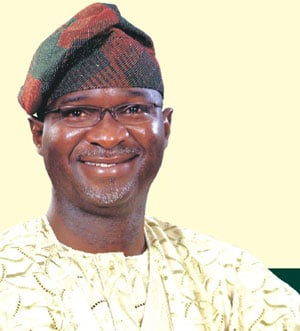The Nigerian Communications Commission (NCC) has begun reviewing three regulatory instruments to enhance efficiency, accessibility, and competitiveness in the country’s communications sector.
Aminu Maida, executive vice-chairman (EVC) of the commission, announced on Tuesday at a public enquiry on three subsidiary legislations held in Abuja.
The regulations under review are the licensing regulations, enforcement processes regulations, and the internet code of practice.
Maida, who was represented by Rimini Makama, NCC’s executive commissioner for stakeholder management, said the review is in line with global best practices and aims to build a comprehensive communications framework that serves the interests of all stakeholders.
Advertisement
He noted that the regulations under review are essential in ensuring that the communications sector remain viable.
According to the EVC, the revised internet code of practice reflects Nigeria’s evolving digital landscape and aims to safeguard the rights of users while ensuring that service providers uphold the highest standards of ethical and technical conduct.
“It introduces robust provisions, including open internet access, cybersecurity and data protection, use of artificial intelligence by operators, child online safety, network governance and anti-spam measures,” Maida said.
Advertisement
“On the enforcement processes regulations, as the industry advances and the globe metamorphoses into a converged market, there is a need to update enforcement measures that are not as limited but provide for regulation through a wider scope.”
He added that licensing remains central to the commission’s mandate, requiring any operator seeking to offer communication services in Nigeria to obtain approval from the NCC.
“In view of current trends and the evolution of digital tools and instruments, there is a need to refine this regulation in order to accommodate these advancements,” the EVC said.
“The revised licensing regulations streamlined the licensing process, clarified obligations, and introduced new provisions on general authorisations, renewal of licences, corporate restructuring and transfers, sanctions and enforcement mechanisms.
Advertisement
“These changes are designed to promote ease of doing business, encourage innovation and ensure regulatory clarity.”
‘REGULATORY FRAMEWORKS MUST ADAPT AS TECHNOLOGIES EVOLVE’
Earlier, Chizua Whyte, head of legal and regulatory services (LRS) at the NCC, said the commission is empowered by the Nigerian Communications Act 2003 to develop and amend regulatory instruments.
Whyte, represented by the deputy director of LRS, noted that Nigeria’s communications industry is undergoing a major transformation driven by rapid technological innovation and emerging digital trends that continue to reshape global connectivity.
Advertisement
“As these technologies evolve, regulatory frameworks must also adapt at a commensurately accelerated pace to ensure their continued relevance and effectiveness,” she said.
“To this effect, several significant amendments and introductions have been made to a few instruments which will be reviewed during this public enquiry, as a key ingredient of the participatory approach of the NCC.”
Advertisement
Whyte said the exercise, which follows six months of consultation, demonstrates the commission’s commitment to inclusive and transparent regulation.
Advertisement






